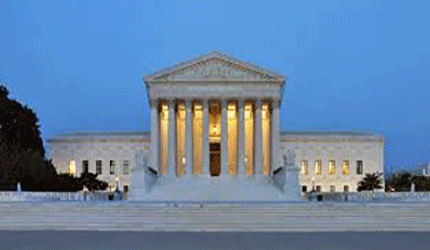
Supreme Court Declines to Review Industry Appeal of Drug Cleanup Program
The U.S. Supreme Court has declined to review a lower court ruling that upheld a California county ordinance requiring drugmakers to collect and dispose of unwanted drugs, in an outcome that could end up costing industry millions of dollars.
In Pharmaceutical Research, et al v. Alameda County, CA, et al, PhRMA, GPhA and BIO asked the high court to deem the ordinance unconstitutional and overturn a decision by the Ninth Circuit Federal Court last fall upholding the measure.
Alameda County has estimated the annual cost per drugmaker for its take-back program at $5,300 to $12,000. By contrast, King County, Wash., which started a similar program, estimates total costs of $1 million per year for all manufacturers selling drugs in the county.
The question is whether more jurisdictions will start implementing these types of drug disposal programs, in which case it could become very expensive for the industry, says James Shehan, an attorney with Hyman, Phelps & McNamara.
While Alameda’s estimate may be a little low, there are more than 3,000 counties in the U.S. and the costs to industry could be enormous if the idea gains steam nationwide, he adds.
Under Alameda’s ordinance, a company that sells or distributes drugs in the county must establish its own program or join a group of companies to collect and dispose of any unused drugs. Manufacturers are prohibited from charging a fee to fund the program.
Alameda County Counsel Donna Ziegler called the Supreme Court’s decision a significant victory for all jurisdictions that have been watching the case.
In a joint statement, PhRMA, GPhA and BIO said they will continue to educate consumers on the appropriate use of medicines, including secure and effective methods for disposal.
Industry’s options are somewhat limited at this point, Shehan says, noting the Ninth Circuit — which covers California, Idaho, Montana, Nevada, Oregon and Washington — has settled the issue there. If a program implemented outside the Ninth Circuit gets challenged and results in a different ruling, then the Supreme Court may be willing to take up the issue, he says. — Jonathon Shacat
